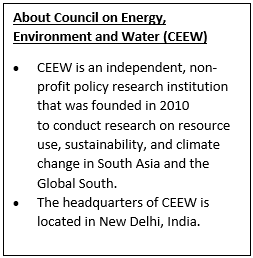You're all caught up—no notifications available.
Explore All Exams at KGS

All Exams
Explore All Exams at KGS
Khan Sir Courses
Geography I Polity I History | World Map I Indian Map I Economics I Biology
UPSC & State PSC
UPSC I BPSC I UP-PSC I MP-PSC
State Exams
UP I Bihar I MP | Rajasthan
NEET | JEE | CUET | Boards
NEET | JEE | CUET | Boards
Defence Exams
NDA I CDS I CAPF I AFCAT I SSB I Agniveer
Police Exams
UP SI | Bihar SI | Delhi Police | UP Constable
SSC Exams
CGL I CPO I CHSL I MTS I SSC GD I Delhi Police
Foundation Courses
Physics I Chemistry I Biology I History I Geography I Polity I NCERT I Math I English | Map I Reasoning
Railway Exams
RRB | RPF
Teaching Exams
TET | Teaching | UGC
Banking Exams
SBI | RBI | IBPS
Engineering Exams
Civil | Electrical | Mechanical
UGC NET
UGC NET/JRF
Current Affairs provides you with the best compilation of the Daily Current Affairs taking place across the globe: National, International, Sports, Science and Technology, Banking, Economy, Agreement, Appointments, Ranks, and Report and General Studies

SYLLABUS
GS-3: Infrastructure: Energy.
Context: Recently, the Council on Energy, Environment and Water (CEEW) released two studies that highlight that India could generate about 11 million tonnes of solar waste by 2047.
Key Findings of the Studies
• As per the study, to manage 11 million tonnes of solar waste, India requires nearly 300 recycling plants across the country and an investment of around ₹4,200 crore.
• The studies also said that recovering and reusing materials from discarded solar panels could create a ₹3,700-crore market opportunity by 2047.
• The recovered materials could meet 38% of India’s solar manufacturing inputs and help to avoid 37 million tonnes of carbon emissions by replacing virgin resources with recycled ones.
• The study notes that solar recycling remains financially unviable in its current setup, as recyclers face losses of ₹10,000–12,000 per tonne due to high buyback and processing costs.
• Buying back used modules is the largest expense, accounting for nearly two-thirds of total costs at around ₹600 per panel.
• The CEEW suggests that profitability can be achieved if module prices fall below ₹330 or if recyclers receive support through Extended Producer Responsibility (EPR) certificates, tax incentives, and R&D funding.
• The study calls for introducing EPR targets for collection and recovery under the E-Waste (Management) Rules, 2022.
• The study recommends creating a Circular Solar Taskforce under the Ministry of New and Renewable Energy (MNRE) to coordinate policy, finance and industry action, along with a centralised solar inventory to map waste hotspots and improve transparency in material data.

Overview of Solar Waste in India
• India’s rapid solar expansion, driven by its renewable energy targets and climate commitments, has also resulted in a growing challenge of solar waste management.
• As of 31st July 2025, India’s installed solar capacity stands at 119.54 GW, marking an increase of more than 42 times from 2.82 GW in 2014.
• This surge in installations is expected to generate over 11 million tonnes of solar waste by 2047, primarily from crystalline-silicon modules, as per studies by the Council on Energy, Environment and Water (CEEW).
• While India’s emission intensity of GDP has declined by 36% between 2005 and 2020, indicating progress toward low-carbon growth, the end-of-life management of solar modules remains a pressing environmental concern.
• Currently, the solar recycling ecosystem in India is still in its infancy, with limited commercial recyclers and high costs of waste collection and material recovery.
India’s Efforts Against Solar Waste
• GST Rationalisation for Renewable Energy
• Strengthening Waste Management and Circular Economy
• Alignment with National and Global Commitments
UPSC Mains Practice Question
India’s transition to clean energy is creating new challenges related to solar waste management. Discuss the significance of developing a circular economy for solar waste in India. Also, highlight the recent policy measures and institutional efforts taken to address this emerging concern.
Source:
The Hindu
Solarquarter

NCERT Books
Resources
We love learning. Through our innovative solutions, we encourage ourselves, our teams, and our Students to grow. We welcome and look for diverse perspectives and opinions because they enhance our decisions. We strive to understand the big picture and how we contribute to the company’s objectives. We approach challenges with optimism and harness the power of teamwork to accomplish our goals. These aren’t just pretty words to post on the office wall. This is who we are. It’s how we work. And it’s how we approach every interaction with each other and our Students.
Come with an open mind, hungry to learn, and you’ll experience unmatched personal and professional growth, a world of different backgrounds and perspectives, and the freedom to be you—every day. We strive to build and sustain diverse teams and foster a culture of belonging. Creating an inclusive environment where every students feels welcome, appreciated, and heard gives us something to feel (really) good about.
Get Free academic Counseling & Course Details
